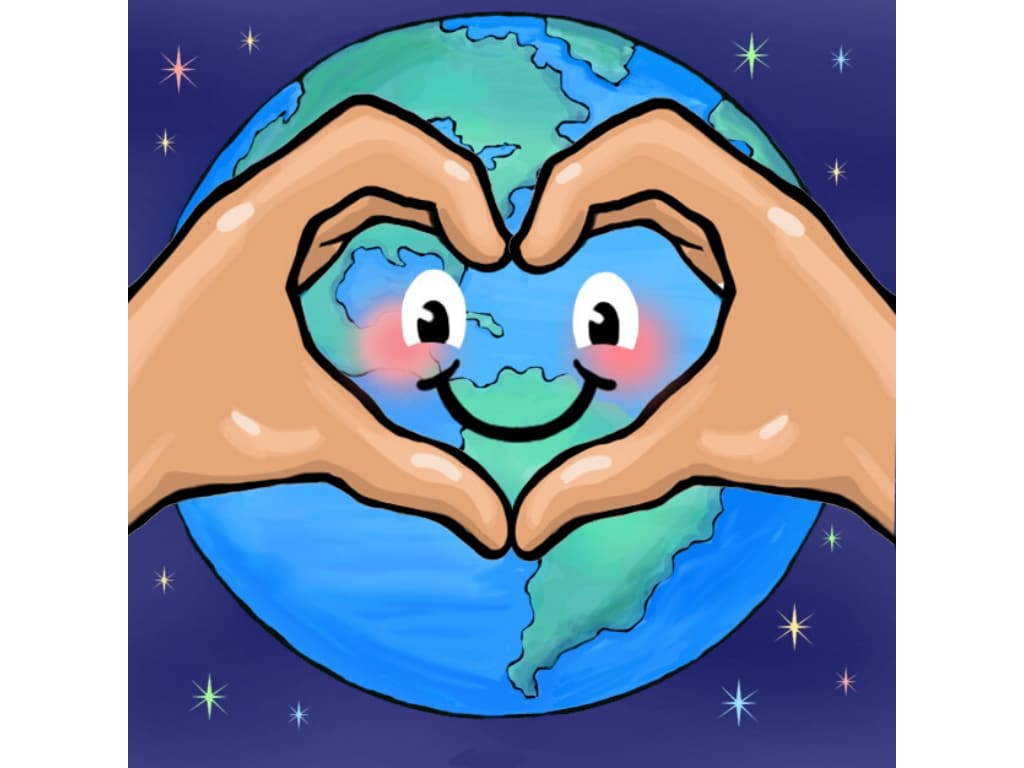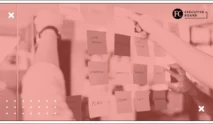The world is a different place than it was just a few weeks ago.
Coronavirus has touched nearly every country on earth, and for most, has brought life and business to a screeching halt. Not surprisingly, this has created a perpetual state of uneasiness. People are tired. People are scared. And if you spend any time at all watching the news, it seems to be getting worse by the day.
Sure, much of the spotlight remains on all the negative effects of the virus around the globe, but there is a beacon of hope. Though the media chooses to lead with headlines that feature case numbers, death tolls, and plunging financial markets, dig a little deeper and you’ll find stories of optimism and opportunity.
While many businesses are working overtime identifying ways to cut costs, reduce staff, increase savings, and prepare for the worst, others are turning their energy towards the greater good. Through thoughtful innovation, many companies and individuals have begun doing their parts to stop the spread of the coronavirus, help those already infected, and bring some normalcy back to the world.
These encouraging stories are proof that even during the most difficult of times, we all possess the creativity and innovative mindsets to bring incredible ideas and positive change into the world.
Breathing Life into a Desperate Hospital
One of my absolute favourite stories of innovating for good that’s emerged over the last few weeks took place at a hospital in Brescia, Italy, one of the hardest hit countries by the virus.
The hospital is treating 250 coronavirus patents in its ICU – a much greater number than they are normally equipped to serve. And this surge in numbers has caused a significant problem. Earlier this week, they were running out of vital respirator valves. These valves are a crucial component of the machines keeping these patients alive, and with the sudden spike in demand around the globe, are in short supply.
Hearing of the serious issue, an Italian journalist took it upon themselves to connect the hospital with local 3D-printing company Isinnova. CEO Christian Fracassi and mechanical engineer Alessandro Romaioli raced over to get a first-hand look at the respirators and the valves. While they had never manufactured medical equipment before, the duo didn’t care. Their city, their country, and the world needed a solution, and the pair believed in the power of their team to find one.
Back at their facility, Isinnova quickly mocked up a prototype in just under 3 hours. Seeing that it matched the original valve, they got to work mass producing the piece across their six industrial printers, churning out 100 valves in the first 24 hours.
As Fracassi admitted to the press, members of their team “…haven’t slept for two days,” but spirits were still high. Their valves were literally being used to save the lives of their fellow Italians. And more than that, at a material cost of less than 1 Euro, the team realized that their prototype could be used globally to help ensure respirators can work uninterrupted, and so they plan to quickly refine and distribute the design to 3d-printers everywhere.
A non-medical team creating a vital medical device that saves lives in just 24 hours. That’s innovation.
The Power of Alcohol
One of the earliest products to disappear from store shelves and medical supply closets was hand sanitiser. Unfortunately, many have likely heard by now the stories of self-proclaimed “entrepreneurs” buying up bottles by the tens of thousands and selling them at outrageous (and often illegal) markups.
While stories like these are grim, there are just as many stories emerging of businesses taking it upon themselves to solve the supply problem, and deliver much needed sanitiser around the globe. French luxury manufacturer LVMH – parent company of Louis Vuitton, Moet Hennessey, and many others – announced this week that they had stopped production of goods in their perfume and cosmetic factories, and transitioned their teams and raw materials towards the manufacturing of hydroalcoholic gel that can be distributed across their native France, and if supply allows, globally as well.
Can you imagine what it would take to reengineer the manufacturing line at one of the world’s largest companies…in just a few days? But for LVMH, when there is a need there is a way, and so they found an innovative solution to do their part to stop the virus.
And it’s not just large-scale luxury brands stepping in with innovative solutions to the hand sanitiser shortage. Breweries and distilleries around the globe have also begun manufacturing their own supply of sanitiser using in-house alcohol, and are distributing supply to those in need for free.
I can guarantee that most of these companies had no idea how to make hand santiser just a few days ago. But like LVMH, they need was too strong to ignore, and so they put their heads together and found an innovative way to do their part to help.
Shoes Yesterday. Masks Today.
Once scientists and medical professionals discovered just how efficiently coronavirus spreads from person to person, it became clear that face masks were the number one defense against the virus. Unfortunately, much like hand sanitiser, the global supply of face masks was nowhere near the level needed to match to the immediate spike in demand.
But thankfully, companies like shoe maker New Balance stepped up to solve this problem.
With no design, no plan, and zero history in manufacturing medical devices, a small team of New Balance employees from various backgrounds and divisions locked themselves in a room with nothing more than a whiteboard, a sampling of raw materials available in their factory, and the desire to create a solution to a growing global problem. What emerged when they were finished was a prototype for a face mask that could be mass produced using their existing materials, teams, and equipment.
After receiving positive feedback from local medical and government officials, the company is ramping production with the goal of creating up to 100,000 masks this month to help offset the shortages across the country.
Another amazing innovation, without having anything to do with profits, shareholders, or bonuses. Just a group of concerned individuals looking for a way to contribute. Truly amazing!
The Show Must Go On
While not life threatening, one of the biggest negative side-effects of the coronavirus is isolation. As schools and businesses close globally – some for months on end – people have no choice but to stay home to stop the spread of the virus. And this unfortunately means that vital social interactions and many important life events are being put on hold.
And for students across Japan who were set to graduate at the school year’s end in March, this meant no more graduation ceremonies. That is, until the kids took matters into their own hands…
With zero assistance from their parents or teachers, students from one Japanese elementary school decided to create their own virtual graduation ceremony using the popular game platform Minecraft. Together, the students built an assembly hall to host their virtual event, and then brought in their avatars to participate in the ceremony. Though it may not feel the same as walking across a stage and getting handed a diploma, I’d argue that this innovative graduation ceremony will be more memorable and meaningful to this group of students than any live event could have ever been.
Just days after this virtual ceremony, the same innovative thinking was seen thousands of miles away in Boston. Irish rock group The Dropkick Murphy’s has played a show on or around St. Patrick’s Day for 24 straight years. However, with all of Boston’s music venues going dark due to the virus – including the House of Blues, where the band was scheduled to play – it looked like that streak was going to end.
That is, until they got together with a local production company and found a way to live stream their show around the world. What could have been a sad end to a longstanding tradition ended up becoming a smash success. The original concert had a planned attendance of 2,500 people. The livestream? It was viewed by over 7 million fans!
Tracking the Spread
With so much daily news coverage on the coronavirus, it has gotten surprisingly difficult to stay informed. Conflicting information is coming out by the minute, and there seems to be no centralized location where global citizens can get a clear look at the raw number of cases to better understand the risk and the spread.
That is, until 17-year-old Avi Schiffmann created Ncov2019 – a website dashboard that clearly displays the most up-to-date information related to coronavirus cases and deaths across the world.
This super clean and easy to understand dashboard seems like something that would have been developed and launched by a world health organisation. But no, it was built and launched in a matter of days by a single teenager sitting at home – proof that innovative ideas don’t discriminate against age or limited resources.
Innovating for Good
While everyone’s world is in turmoil right now, there’s nothing stopping us from bettering our lives and the lives of those around us. This is just a small sample of what is possible when you refuse to throw in the towel, and find innovative ways to bring good to the world.
Of course, it’s never easy. But as seen here, we need to try. It’s clear that life will be disrupted for many months (or even years to come). People are being forced to say a premature goodbye to loved ones. Others are losing businesses they spent decades building by hand. Even more are watching their savings evaporate. As one global society, we are all feeling this pandemic in one way, shape, or form.
We can’t erase what’s already been done. But we can build a better path forward, so long as all of us do our part to innovate for good.




